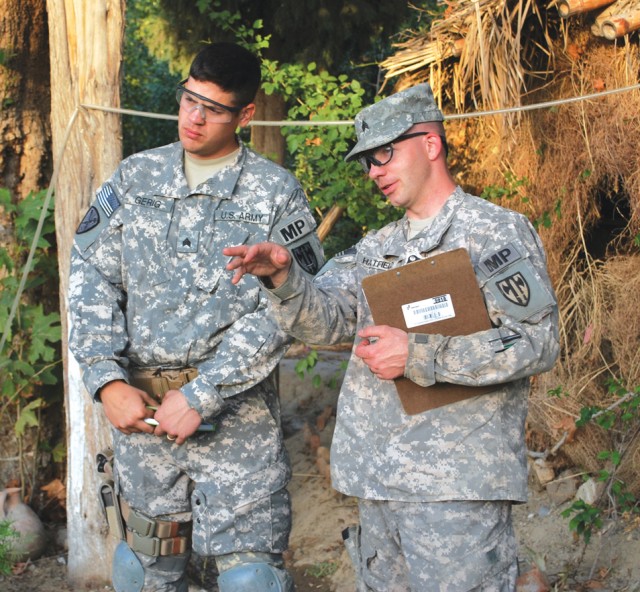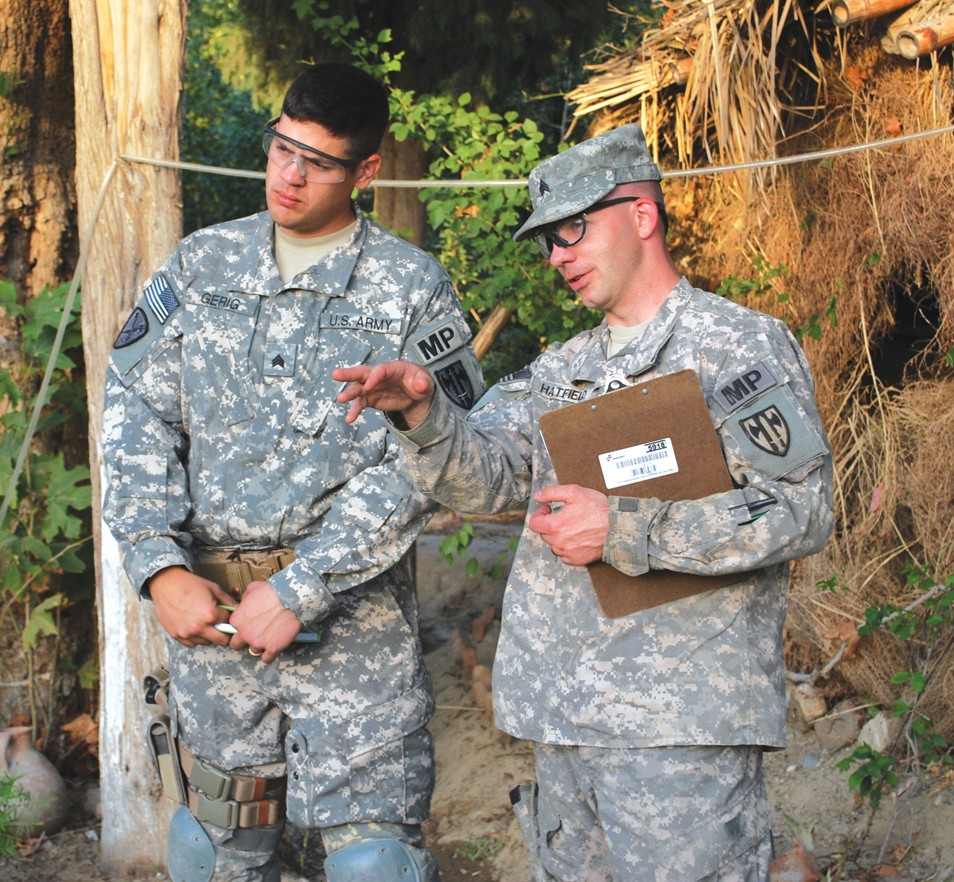
Editor's Note: This is the first installment in a three-part series addressing how reintegration affects families in the military.
STUTTGART, Germany -- When a deployment ends, service members and families may feel like their troubles are finally over.
However, it takes time to recuperate from spending months to a year in a combat zone. And, the adjustment isn't always easy.
"I liken it to taking a rucksack off," said Chaplain (Col.) Randall Dolinger, U.S. Army Garrison Stuttgart command chaplain. "It feels really good to take a rucksack off ... but you're still really tired. You still have to recover from that time."
Service members and behavioral health experts say seeking support from others is the best way to mitigate or avoid problems after returning home.
Phases of reintegration
The "reintegration" period is the first few months after a service member returns from a deployment, according to Dr. Eric Leong, chief of behavioral health for the Stuttgart Army Health Clinic.
During this time, they are reintroduced to their family, a garrison job and life outside of work.
The first month or so is called the "honeymoon phase" of reintegration, in which time the service member and his or her family are just excited to be together again, Leong said.
But by the third month, deployment issues start to surface, according to Leong. "If you are going to have problems, that's when they peak," he said.
A tale of four deployments
Staff Sgt. Greg Hatfield, a military policeman with the 554th Military Police Company in USAG Stuttgart, has deployed four times during his 12 years of service. Every time he's come home, there have been different hurdles to confront.
His first three deployments were almost back-to-back: Kosovo for nine months in 2001, then Iraq for a year in 2003 and again in 2005.
"It was a brutal time for me and my wife," he said. "For five years, we saw each other for 19 months. It was kind of a blur."
After his first deployment to Kosovo, there were not many programs in place to help him and his family readjust, he said. "There were a few classes. Then, they threw me back to my family," he said.
"It was very rough on everyone I know," he said of fellow Soldiers. "A lot of families didn't make it."
When Hatfield came home after the 2003 deployment to Iraq, the stress built up over the two deployments spilled out. On top of that, his wife had given birth to their first child, Brianna, while he was away.
"It was hell," he said. "I resented coming home. I had an almost 1-year-old daughter there, needing attention. All I wanted to do was be left alone."
Hatfield didn't want to talk to his wife about what he had encountered down range, which put stress added on the marriage.
"She always felt so left out," he added. "I just felt so exhausted all the time. I was just so distant."
Arguments became more frequent.
"I've never been an angry person," he said. "I would lash out."
Everyday noises would startle him. One night, when he was doing the dishes, his wife walked in and said his name, which sent him into high alert.
"I would drop to the floor, my heart pounding," he said. "There were signs of PTSD and I didn't realize it."
His family encouraged him to see a counselor, so he visited a website he had on a refrigerator magnet, www.myarmyonesource.com, and was referred to a trained PTSD counselor at the local Veterans Affairs hospital. However, he soon had to deploy again.
While on his third deployment in 2005, Hatfield lost some friends and saw others get injured, which made his symptoms worse. He decided he needed to see a counselor, despite discouragement from his commander.
"I took heat from my commander," Hatfield said. "He didn't want me to go," because he thought other Soldiers would follow suit, he added.
Hatfield went anyway.
"Once I went, several other Soldiers stepped forward and said 'Sgt. Hatfield, because you had the courage to do this, I have also.' It's one of the things that stuck with me in my career," he said.
Seeing the counselor helped Hatfield, but he and his wife still had issues to address from previous deployments when he returned home again, he said.
After moving to USAG Fort Hamilton in 2006, they started seeing a counselor at the local VA hospital, again though myarmyonesource.com, and continued to do so for two years. Sessions are confidential for all service members, unless they pose a danger to themselves or others, Hatfield added.
"It was probably the best thing for us," Hatfield said. "We had made agreements as to behavioral changes, and we stuck to it."
They also started to communicate regularly.
"If something is bothering you, it's important you tell [your spouse]," Hatfield said. "[Your] wife or husband can't help you if you don't open up."
Since Hatfield returned from his fourth deployment in May with the 554th MP Co., things are very different than they used to be.
"We change how we address [issues]," he said. "We don't yell; we talk. This time, there's more peace at home."
He attributed this to the counseling programs he has taken advantage of.
"The Army's come a long way since I first went for help," he said. "My last unit made it so easy for me to get the help I needed to save my family and myself, because we were on the road to divorce."
Trouble sleeping
Besides marital issues, the most common problem Dolinger and Leong see in service members is trouble sleeping.
"About 70 percent of people coming back from a deployment have a serious sleeping disorder," Leong said. These can range from simply not being able to sleep to having vivid nightmares, thrashing or even choking a spouse during sleep.
"A lot of times, they can't sleep," Leong said. "Symptoms worry about things all the time. They worry about friends, they worry about their families. If they [lost] anybody down range, they feel personally responsible for that, and a lot of them can't let it go."
Lack of sleep can lead to other issues, including irritability and hyper vigilance, Leong said.
"It's affecting their home life. It's affecting their ability to do their job," Leong said.
Leong encourages service members who can't sleep to get professional help right away.
"If I can fix the sleep problem, a lot of other stuff goes away," Leong said. "A lot of people feel so much better, they can manage the rest."
The worst thing to do is self-treat the problem with alcohol or over-the-counter sleep aids, he added.
"It will start to destroy your health, family, finances, career," Leong said.
A change in tempo
In addition to causing sleep issues, transitioning from working non-stop to having free time again, is tough.
"What tends to happen over time is the Soldier goes out in theater and gets exposed to a lot of combat things, learns to think in a different way," Leong said.
Redeployed service members may experience a variety of side effects during this time, including decreased sexual drive, hyper vigilance, and the desire to be alone, he added.
Dolinger noted that most service members experience a constant feeling of unease after a deployment. "They haven't figured out how to unwind," he said.
Dolinger experienced this himself, after returning from a 12-month tour of Iraq in 2004.
"It took several months before I could truly be at ease," he said. "I did not have a real sense of peace. You're just bouncing from one thing to another, and your mind's racing."
Sgt. 1st Class Todd Parsons, detachment sergeant for the Headquarters, Headquarters Detachment, 52nd Signal Battalion, stationed in USAG Stuttgart, said he felt guilty for spending time at home, after spending six months in Afghanistan as an individual augmentee until February 2010.
"It was tough coming back, coming off working every day, sometimes 18 hours a day," he said. "Your body is set up to go, go, go. Sometimes I felt guilty on the weekend; it was hard to relax because I felt like I was wasting time."
The truth about PTSD
Though certain symptoms of PTSD, including hyper alertness, or sleep issues, are common in redeployed service members, the odds of having full-blown PTSD are extremely low, Leong said.
"People say, 'If you deploy, you'll get PTSD,'" Leong said. "No, you won't. It depends on what the deployment was like."
Only 7 percent of service members who watch a friend get killed down range will have PTSD, Leong said. Those who witness moderate combat have a 30 percent chance of having PTSD, and those who witness severe combat have a 50 percent chance. Those at the highest risk are prisoners of war, with a 95 percent change, he added.
An individual's risk for having PTSD is affected by: "the more personal something is, the more times it happens and the more horrible it is," he said.
Regardless of whether or not they have PTSD or just need help adjusting, service members can always receive help, he added.
"As bad as problems might be, there is help out there, and they can get treatment," he said. "And, the earlier they get treatment, the better."

Social Sharing